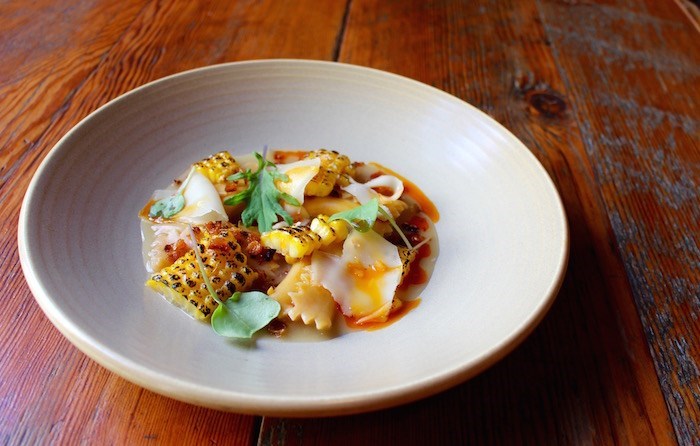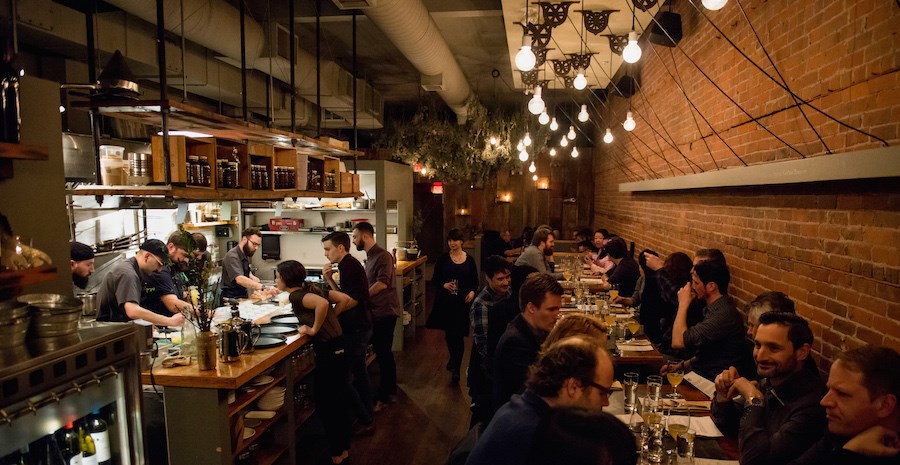Vancouver's restaurant scene officially got a little dimmer Tuesday night when word broke that Gastown's confirmed it would not be re-opening its doors again.
The beloved nose-to-tail and locally-focused 120-seat restaurant had shuttered with the onset of the coronavirus (COVID-19) pandemic in Â鶹´«Ã½Ó³»and the ensuing provincial restrictions on dining and business. Though the venue had done a few collaborative ventures and private events, Wildebeest did not pivot its model, opting to not create a take-out or packaged foods hustle like many of its peers.
Launched in the summer of 2012, Wildebeest was the project of local restaurateurs James Iranzad and Josh Pape. Iranzad was behind Abigail's Party; the 1685 Yew Street location has flipped concepts a few times but has stayed in his family of restaurants and has been Lucky Taco for the past few years. Meanwhile, Pape was known for The Diamond, the still-humming Gastown cocktail bar.
With a name like Wildebeest, you could certainly expect lots of meat on the menu, all of which was carefully selected from local purveyors and handled expertly by the restaurant's many noteworthy chefs, including David Gunawan, Wesley Young, Pekka Tavela, and, most recently, Ian McHale.
Wildebeest had not just a "nose-to-tail" ethos or a "farm-to-table" philosophy, but also had come to be rooted in a full-spectrum practice of sustainability. McHale skewed his menu to include what he called "garbage cuts" of meat, as in the lesser-used, lesser-seen bits that might otherwise go to waste (bison tongue, anyone?). The larder was stocked with house-made pickles and preserves of all sorts, and there was a decided emphasis on vegetables. The result was dishes that showcased a realm of techniques and ingredients that squeezed every drop of what the vegetable or animal had to offer.
To McHale and the Wildebeest team, that culinary mindset meant gambling on curious preparations that sounded a bit like a mad scientist's experiments, like creating a "corn husk stock" out of the roasted exterior leaves of the cob that most of us shuck and abandon to our compost bins or the box the store has set out next to the bin of fresh ears. That stock went into a pasta dish I thought about in the many months since my last visit to Wildebeest, as the pandemic droned on and the restaurant remained closed.
 Sweetcorn Agnolotti from the Farmers’ Harvest menu at Wildebeest. Photo by Lindsay William-Ross/Â鶹´«Ã½Ó³»
Sweetcorn Agnolotti from the Farmers’ Harvest menu at Wildebeest. Photo by Lindsay William-Ross/Â鶹´«Ã½Ó³»The room itself will be a loss as well, with its exposed brick and sense of openness - a bit of a feat in what could come off as a dark room.
And the scene was set: "The long range of high-top tables running the length of the narrow, high-ceilinged room; the lights suspended from pulleys reclaimed from the Pantages Theatre demolition; the custom chairs from Railtown's own Union Wood Co.; the homey, exacting open kitchen; the carefully considered music -- it all works," wrote Andrew Morrison in late 2012 in his Westender column on Wildebeest. (An aside on the backlink: We've had the Westender and Courier archives ported over to V.I.A., but it was automated, so please no angry emails about what appear to be errors.) As the Wildebeest crew are exiting the premises for good come summer.
"Whether it was a decompression session during after-work-week cocktails, kicking up our heels at casual, passed-canape affairs in its private dining enclave (The aptly named ‘Underbelly’) or strapping in for one of its sherry-straight-down-the-bone-marrow luges, it more than earned its reputation for hospitality and turning out some of the best industry talent in the city," , a pandemic-born award-winning hub for independent restaurant listings in Canada.
For their part, the Wildebeest Instagram account and website have not posted a public farewell.
Sibling restaurants , , and all remain open.



